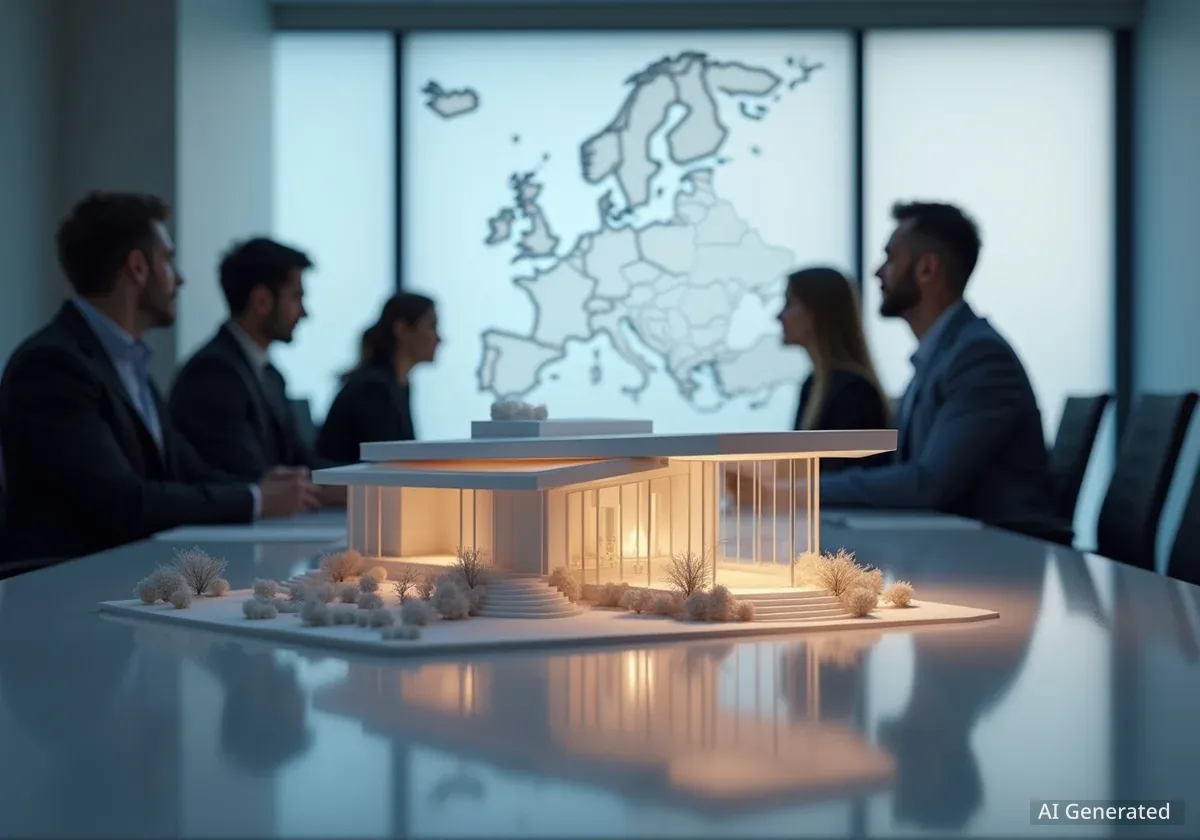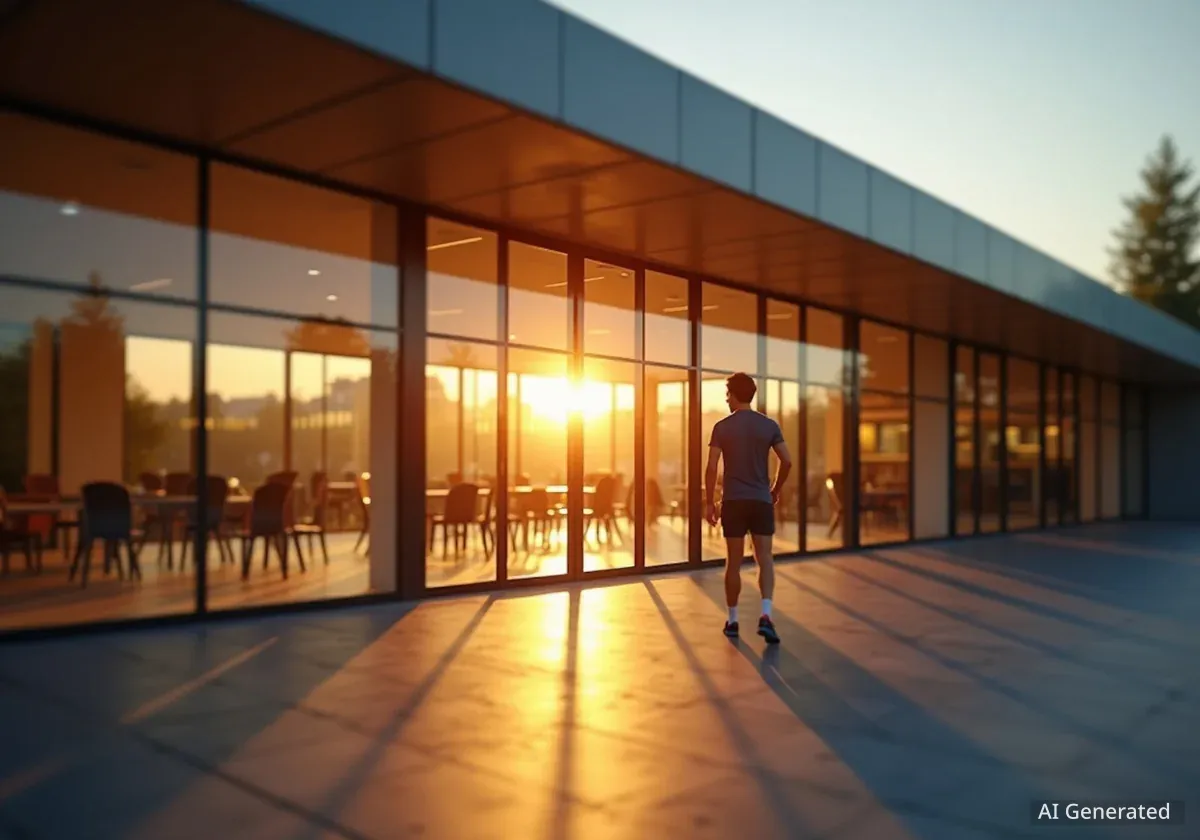David Lloyd Leisure Group has announced a significant £50 million investment to expand its presence in Southern Europe. The plan includes the development of five new premium health and wellness clubs across Spain and Italy, signaling a major strategic push into markets with growing demand for family-oriented leisure facilities.
The expansion is expected to create over 600 new jobs across the two countries and will introduce the company's signature blend of fitness, spa, and family activities to new metropolitan areas. This move underscores the company's confidence in the European leisure sector's post-pandemic recovery and its long-term growth prospects.
Key Takeaways
- David Lloyd Clubs is investing £50 million in a new European expansion initiative.
- The plan involves opening five new state-of-the-art clubs in Spain and Italy.
- Over 600 full-time and part-time jobs are expected to be created.
- The expansion targets affluent urban and suburban areas with a focus on family wellness.
A Strategic Push into Southern Europe
The decision to focus on Spain and Italy comes after extensive market analysis identified a gap for premium, family-focused health clubs. While both countries have established fitness markets, the integrated wellness model that David Lloyd champions is less common. The company aims to replicate its successful UK formula, which combines gyms, swimming pools, tennis courts, spa facilities, and children's activities under one roof.
Company officials state that the initial locations will be concentrated around major cities. In Spain, new clubs are planned for the outskirts of Madrid and Barcelona, while in Italy, the company is targeting Milan, Rome, and Turin. These locations were chosen for their demographic profiles, which show a high concentration of affluent families seeking high-quality leisure options.
The investment marks one of the largest capital expenditure projects for David Lloyd Clubs outside of the United Kingdom. It represents a clear strategy to diversify its geographical footprint and tap into new revenue streams in robust European economies.
Details of the New Facilities
Each new club will be developed to the company's latest design standards, with a typical footprint of around 12,000 square meters. The facilities are being designed to offer a comprehensive wellness experience for all ages.
What to Expect in Each Club
The new clubs will feature a standardized set of premium amenities, including state-of-the-art gym floors with the latest fitness equipment, both indoor and outdoor swimming pools, and multiple tennis, padel, and badminton courts. A significant portion of each facility will be dedicated to family services, including a DL Kids club, nurseries, and dedicated family changing rooms.
A key feature of the expansion is the emphasis on spa and relaxation zones. Each location will include a luxurious 'Spa Retreat' with hydrotherapy pools, saunas, steam rooms, and treatment areas. This focus on holistic wellness is a core part of the company's strategy to attract a broader membership base beyond traditional gym-goers.
"Our goal is not just to build gyms, but to create communities where families can spend quality time together, focusing on their health and well-being. This £50 million investment is a testament to our belief in the Southern European market and our commitment to providing world-class facilities." - Glenn Earlam, CEO of David Lloyd Leisure Group.
Construction on the first two sites, located near Madrid and Milan, is scheduled to begin in the first quarter of next year, with an anticipated opening date in late 2025. The remaining three clubs are slated to open in phases through 2027.
Economic Impact and Job Creation
The £50 million investment is projected to have a substantial local economic impact. The creation of over 600 new jobs is a significant aspect of the plan. These positions will range from management and fitness professionals to hospitality and administrative staff.
Job Breakdown by Sector
- Fitness & Coaching: Approximately 40% of new roles will be for personal trainers, group exercise instructors, and sports coaches.
- Hospitality & Operations: 35% will cover roles in the club's cafes, member services, and facility management.
- Childcare & Family Services: 15% will be dedicated to running the DL Kids programs and crèche facilities.
- Management & Administration: The remaining 10% will be for club management and back-office roles.
Beyond direct employment, the construction phase for each club is expected to support hundreds of additional jobs in the local building and trade sectors. The company has also stated its intention to prioritize local suppliers for services and products once the clubs are operational, further embedding them into the local economy.
This move is seen as a vote of confidence in the retail and leisure property markets of Spain and Italy, which have faced challenges in recent years. The long-term leases and significant capital investment associated with these large-format clubs provide stability and attract further investment into the surrounding areas.
Market Context and Future Outlook
The European health and wellness market has shown remarkable resilience and is projected to grow significantly in the coming years. There is a clear consumer trend towards prioritizing health, with a willingness to invest in premium experiences that offer more than just a basic gym membership. David Lloyd is positioning itself to capture this growing segment of the market.
The company's expansion strategy is not without challenges. It will face competition from established local fitness chains and boutique studios. However, its unique selling proposition as a 'third space' for families—a place between home and work—is a powerful differentiator.
If this initial phase of expansion proves successful, sources within the company suggest that further investment could follow, potentially targeting other European markets such as Portugal and Germany. For now, the focus remains on executing the £50 million plan and establishing a strong brand presence in Spain and Italy, setting the stage for what could be a new chapter of growth for the UK-based leisure giant.





